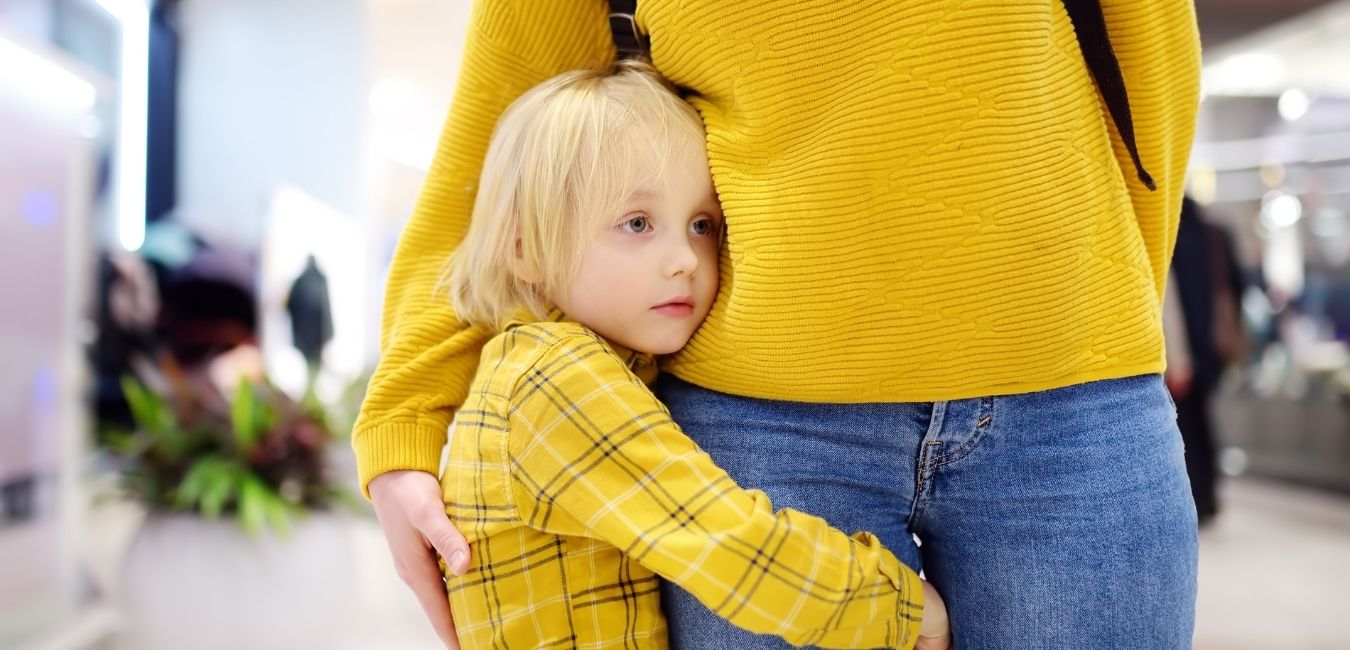Even though our kids are resilient and amazing, the idea that they might be wrestling with a little anxiety over going back to school this year is more than just a possibility – it’s a likelihood, and a perfectly reasonable response to everything the world has thrown their way.
Back to school has always been a potentially anxious time for kids, especially those who have difficulty separating from parents. Kids might be nervous about meeting new people, or reuniting with old friends. They might remember past negative experiences, like an encounter with a bully or a difficult time with writing or math. Maybe they’re worried about how they look, whether or not they have the right gear, or how they’ll fit in. Whatever they’re worrying about, or how sure the adults in their life may be that everything will be just fine, in their minds and bodies their fears are very real, very important, and very hard to overcome.
Your child might be wrestling with anxiety if:
They seem a little more needy or clingy
Asking for extra snuggles, not wanting to be alone in their room, and strong emotional responses to relatively common occurrences can be evidence of some serious worry going on beneath the surface.
They seem more restless or fidgety than usual
Some kids demonstrate their worry with their bodies instead of their words – if your little one is having unusual trouble sitting still, is biting their nails or picking at their skin or hair, complains of stomach or headaches often in spite of a clear wellness check at the doctor, or is exhibiting other unusual physical behavior, it might be connected to how they’re feeling.
Their habits change
Children are always changing interests and passions, but if your very active kid suddenly wants to stay in their room all day, or your good eater starts avoiding meal time, they may be processing some anxiety around the upcoming back to school routine change.
They tell you
Sometimes, our kids make it easy for us! If your child tells you they’re worried about going back to school, or you suspect they might be based on their behavior, here are a few simple ways to help ease their transition back to the classroom:
- Check your own stress levels. Our kids look to us for examples of how they should feel, so if we’re feeling stressed and uncertain, chances are they will be too. Take time to invest in the self-care, research, and planning you need to feel good about the back to school transition yourself, so you can help your little one feel great too!
- Get familiar with places and faces! In the weeks leading up to back to school time, take your kids on a tour of the school, pointing out classrooms, playgrounds, libraries, and everything that looks fun. Practice the route to and from school, whether it’s a drive, bus trip, or walk. Plan pre-start-of-school play dates with friends they haven’t seen in awhile to help them feel more confident on that first day.
- Validate and normalize their feelings. Remember that their anxiety is an appropriate response to the last couple years, and make sure you tell them so. Use affirming statements like “It makes sense to me that you would feel that way” and “Wow, that would make me feel worried too!” Help them understand that the other kids, and maybe even some teachers, are probably experiencing the same sort of worries. Ask them questions that focus on the positive: “What do you think you’ll do in music this year?” instead of “Are you worried about music class?” Make sure they know how confident you are in their ability to face and overcome challenges.
- Make finding the fun a game! Invite your kids to collaborate with you to find the fun in back to school. Ask: “What sorts of things can we do to make this transition a little easier and more fun for you?” Maybe it’s shopping for new back to school supplies, planning their favorite lunches, or helping them choose and layout outfits for the first week. Figure out what they are excited about, and turn up the volume on those things!
- Help them get enough sleep and exercise. The best tool for managing anxiety is a combination of physical activity and rest. Help them shake some of their worries away with walks, park days, or dance parties, and make sure to start the back to school bedtime routine early. When kids are well rested and active, they’re better prepared for change.
Remember:
Anxiety about going back to school is normal, this year especially, AND
You are your kids’ most important resource for learning how to manage and overcome their fears.
Take the time to set your kids up for a smooth transition. Even though we’re all feeling a little wary, their return to school is FULL of things to celebrate. After a few weeks, this new thing won’t be so new anymore, and all the stuff that makes school great will take center stage. For now, big hugs, deep breaths, and some careful planning – let’s go back to school!






